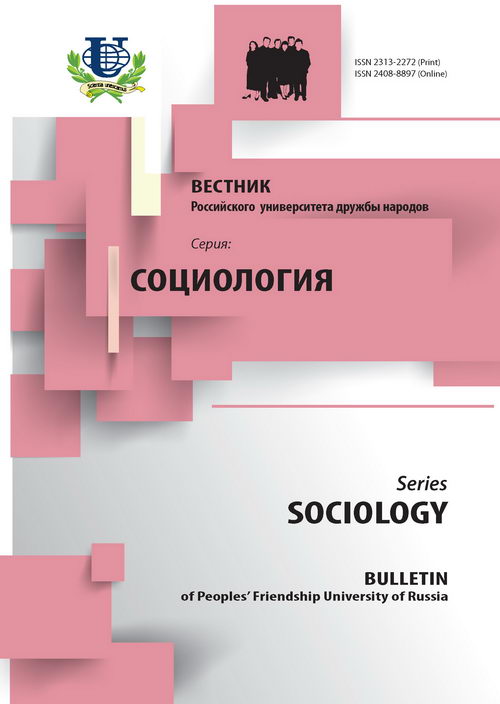Demographic Aspects of Sustainable Development Theory
- Authors: Munin PI1
-
Affiliations:
- Moscow State Academy of Business Administration
- Issue: No 1 (2011)
- Pages: 34-45
- Section: Articles
- URL: https://journals.rudn.ru/sociology/article/view/6292
Cite item
Full Text
Abstract
The transition to the information society is accompanied by the change in the spectrum of human interactions describing the informational capacity of a particular community as a whole. The article helms the reader to the wide range of diversity in time and geographical space representing it as multiplicative indices of development worked out on the basis of factual demographic evidence.
About the authors
P I Munin
Moscow State Academy of Business Administration
Author for correspondence.
Email: mounine@miba.ru
Кафедра философии и общественно-правовых дисциплин; Московская государственная академия делового администрирования; Moscow State Academy of Business Administration
References
- Vserossiiskaya perepis' naseleniya 2002 goda // http://www.perepis2002.ru
- Demograficheskaya modernizatsiya Rossii, 1900-2000 / Pod red. A.G. Vishnevskogo. - M.: Novoe izdatel'stvo, 2006.
- Koulmen D. Tretii demograficheskii perekhod // Demoskop Weekly. - № 299-300. - 3-16 sentyabrya 2007 // http://demoscope.ru/weekly/2007/0299/tema05.php
- Munin P.I. Teoriya ustoichivogo razvitiya: Informatsionnye osnovy. - M.: LIBROKOM, 2009.
- Orlov Yu.N. Metody matematicheskoi demografii: sovremennoe sostoyanie, problemy, tochnye rezul'taty // http://theorphys.fizteh.ru/mezhpr/reservrassylka/mezprs30sept2009a.html
- IDB - International Date Base [Report]. - [s.l.]: US Census Bureau, 2009 // <http://www.census.gov/ipc/www/idb/regon.php>














